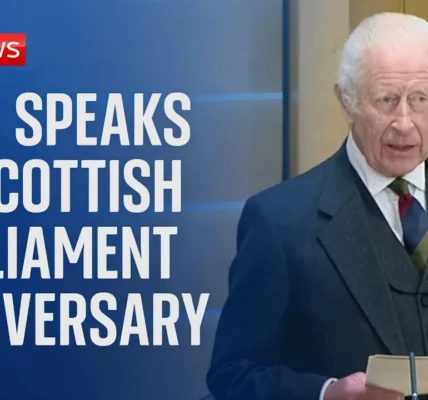UK Government Response to the Situation in Lebanon

This article delves into the UK government’s actions regarding the ongoing conflict in Lebanon, their diplomatic efforts, the implications for British citizens, and the domestic impact these events have on communities within the UK.
Introduction
The ongoing conflict in Lebanon has raised significant concerns for both international relations and the welfare of British citizens in the region. Recent statements from government officials highlight a coordinated effort by the UK to ensure the safety of its citizens while simultaneously advocating for peace through diplomatic channels. This article explores the current situation, the government’s response, and the implications of these events for local communities in the UK.
Current Situation in Lebanon
As of now, the UK government has facilitated several flights for British citizens wishing to leave Lebanon. Here are the key points regarding the current state:
- Three flights have already departed, with another scheduled for today.
- The demand for additional flights remains low, but the government is on standby to provide more if needed.
- The British consulate services have been described as outstanding, ensuring support for those in Lebanon.
Diplomatic Efforts and Ceasefire Calls
The UK government, led by the Prime Minister and the Foreign Secretary, has been vocal in calling for a ceasefire in the ongoing conflict. Here are some critical aspects of their diplomatic strategy:
International Coordination
The UK is working closely with international allies, particularly the United States, to advocate for restraint and a move towards a political resolution.
Calling for Restraint
Despite the calls for a ceasefire, both Israel and Hezbollah have largely ignored these appeals. The UK’s position is based on the following:
- Advocating for disarmament in Lebanon.
- Encouraging Israel to exercise restraint and avoid aggressive actions, particularly towards Iran.
- Maintaining a united front with G7 allies to amplify their diplomatic influence.
Impact of the Conflict at Home
The implications of the conflict extend beyond international borders, affecting communities within the UK. The government has expressed concern over rising anti-Semitic incidents linked to the conflict:
Rising Anti-Semitism
Reports indicate an increase in anti-Semitic incidents, prompting government action:
- The Community Security Trust has reported a spike in incidents compared to previous periods.
- The government is committed to addressing anti-Semitism and other forms of hate.
- Law enforcement agencies have been empowered to tackle hate crimes decisively.
Government’s Position on Israeli Actions
The UK government acknowledges Israel’s right to self-defense while urging caution regarding its military actions:
Advising Restraint
The Prime Minister has communicated directly with Israeli Prime Minister Netanyahu, emphasizing the need for restraint amid escalating tensions.
Complexities of the Situation
The situation is complicated by Iran’s involvement, which has heightened tensions and complicated diplomatic efforts:
- Iran’s missile attacks on Israel have provoked a strong response.
- The UK can advise Israel but cannot dictate its actions as a sovereign state.
- Efforts are being made to promote a return to negotiations and a political settlement.
Conclusion
The UK government’s response to the situation in Lebanon illustrates the complexities of international relations and domestic concerns. While the government continues to advocate for peace and safety, the rising tensions within the UK highlight the need for a comprehensive approach to managing hate and promoting understanding. As the situation evolves, ongoing diplomatic efforts will be crucial in shaping a resolution. We encourage readers to stay informed and engaged with developments in this critical area, as the impact of these events resonates far beyond the Middle East.
“`




